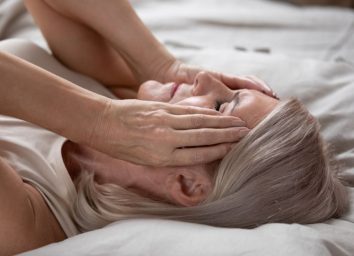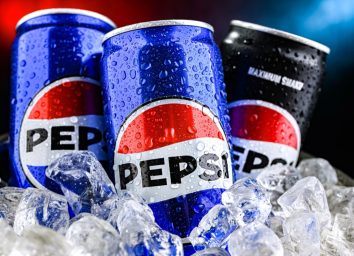Drinking Habits to Avoid for Better Sleep, Say Dietitians
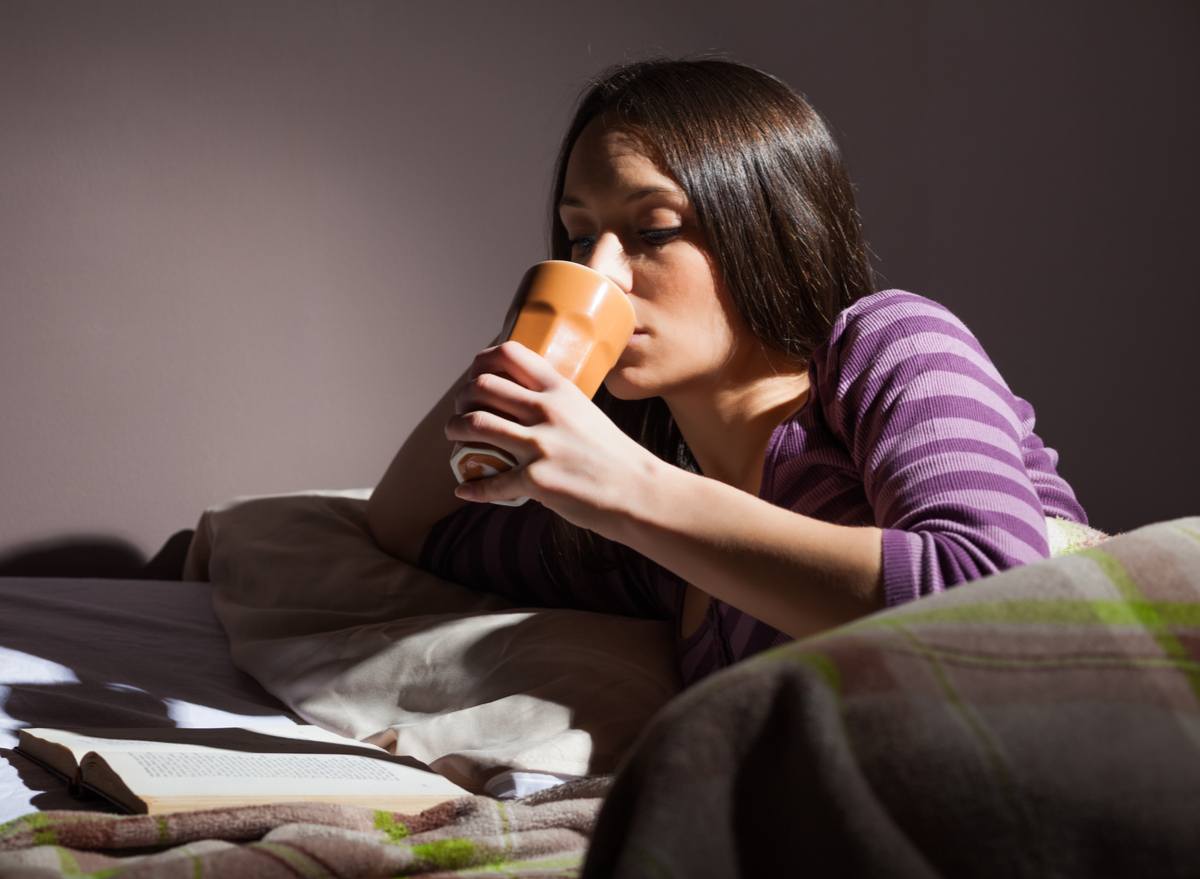
Everyone has experienced some particularly restless nights and falling asleep can prove difficult for many. Certain factors affect the quality of sleep that people get on a nightly basis. According to the Mayo Clinic, a consistent sleep schedule, limits on daytime naps, and finding ways to manage anxiety can all come together to help improve anyone's quality of sleep. In addition to a number of lifestyle habits, certain drinking habits play a major role in determining how much sleep you catch on a nightly basis.
You may have heard that a warm glass of milk can help encourage a good night's sleep, but the word's still out on how effective that method is. In order to dispel some common myths and figure out which drinking habits disrupt sleep the most, we caught up with a handful of dietitians to get the lowdown on the very worst beverage habits anyone can indulge in before going to bed.
In order to drift off to sleep even easier, consider steering clear of a few Eating Habits to Avoid for Better Sleep After 50 and maximize how restful you feel in the morning.
Drinking alcohol too late at night
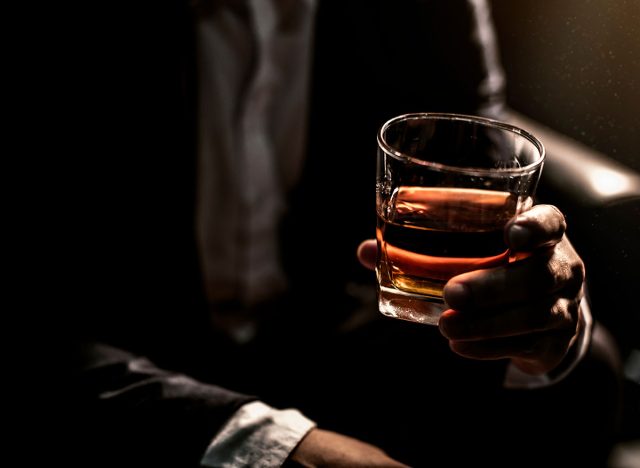
Anyone who hits the bars after work might have to deal with a few unwanted side effects of alcohol when it comes to getting a good night's sleep.
"Alcohol produces several physiologic side effects that lead to hangovers," says Trista Best, RD at Balance One Supplements. "First, alcohol causes an increase in urination which can lead to dehydration and ultimately severe headaches."
These unfortunate after-effects of alcohol consumption can easily destabilize any peaceful night's rest, but that doesn't even compare to those who drink spirits, wine, or beer in order to fall asleep.
Using alcohol as a sleep aid
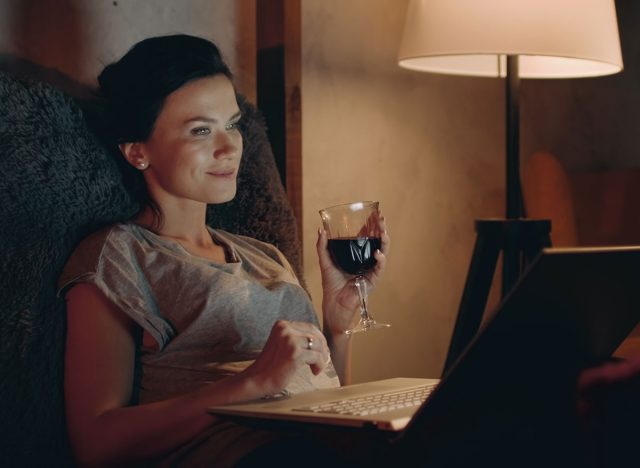
"Roughly 20% of the adult population claims to use alcohol as a sleep aid, but this is a common misunderstanding when alcohol in fact has the opposite effect," Best continues. "There is a common misconception that alcohol will improve sleep when in fact it does the opposite. Alcohol interrupts the REM cycle, which means you will get lower quality sleep when drinking. Alcohol also suppresses the body's natural melatonin production by up to 20 percent. Melatonin is the hormone released by the pineal gland that regulates the sleep-wake cycle and encourages deeper sleep with reduced disturbances."
Don't plan to use alcohol as an effective nightcap, and make sure to avoid mixing it with The Worst Foods for a Good Night's Rest, According to Sleep Experts.
Drinking caffeinated drinks too close to bed
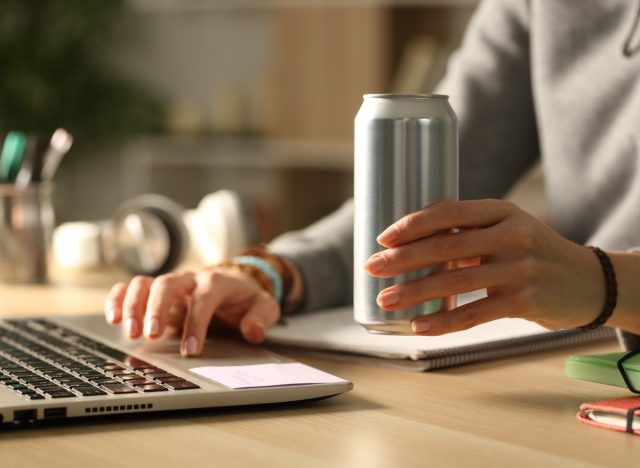
Loading up on caffeine throughout the day can keep you focused, but it also spells disaster for anyone who needs to fall asleep comfortably at the end of the day.
"Energy drinks and sodas are hidden sources of caffeine, which could make it difficult for someone to fall asleep," says Rachel Fine, RDN and owner of To The Pointe Nutrition. "Unlike coffee, consumers are usually unaware of the amount of caffeine that can build from energy drinks and sodas and therefore be at risk for levels that disrupt sleep patterns."
"It is common knowledge that caffeine is a stimulant," says Katie Tomaschko, MS, RDN, and contributor at Sporting Smiles. "So, it should be no surprise that drinking caffeine too late in the day can lead to poor sleep quality. Aim to stop drinking caffeine at least 6-= to 7 hours before bedtime. A good rule of thumb I like to live by is no caffeine after 2 p.m."
Drinking anything too close to bed
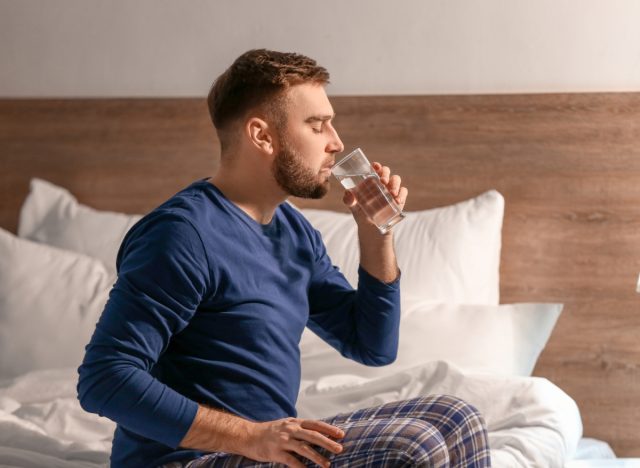
That warm glass of milk right before bed might have the completely opposite desired effect due to one particular reason.
"Although our bodies are incredibly smart and decrease urine output significantly as we sleep (thank you bodies!), drinking too much liquid right before bed can cause you to wake up during the night to use the bathroom," says Tomaschko. "Try to avoid a big glass of water (or anything) right before bed. This will also help decrease your risk of acid reflux."
If you do decide to have a quick beverage before falling asleep, make sure it's The #1 Best Thing to Drink Before Bedtime.
Drinking citrus juice

Everyone has heard that orange juice can provide you with a ton of positive nutrition, but a glass of this drink before falling asleep won't do anyone any favors.
"Although citrus drinks like orange juice, grapefruit juice, pineapple juice that are 100% juice are healthy for the body, these are not drinks you may want to have at bedtime," says Blanca Garcia, RDN and Nutrition Specialist of HealthCanal. "As we age, we start to suffer from ailments out of our control. One of those is heartburn, and if you already had your meal a few hours ago and want to have juice before bedtime this may not be such a great idea. The citrus in these juices can irritate the stomach and cause difficulty to get comfortable and sleep well."

